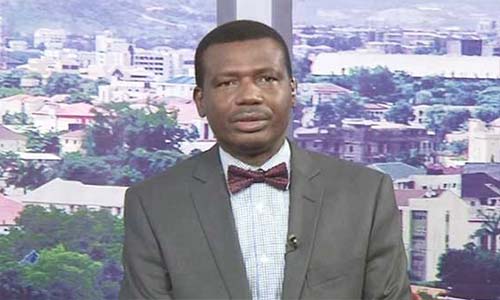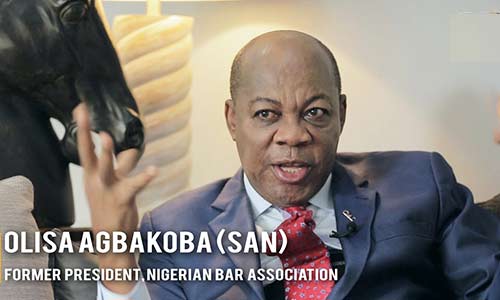Adegboruwa SAN Calls On National Assembly To Reject Calls For Immunity For Judges

A Senior Advocate of Nigeria and human rights lawyer, Ebun-Olu Adegboruwa has rejected the proposal that immunity be granted Judges currently before the National Assembly.
In an interview with Sunday Punch, the Learned Silk addressed a number of contentious topics relating to Nigeria’s Judiciary.
Canvassing the basis for his rejection of the proposal for immunity for Judges, he decried the tendencies of public office holders in Nigeria to act whimsically without being subject to checks or reprimand.
He said, the existing immunity for the President, Vice President, Governor and Deputy Governor is already causing discontent amongst Nigerians and labelled for review talk more of extending same to the judiciary.
He said; “There is no need for that. Nigerians are presently crying for the removal of immunity for the governors and the President.
The agitation now is that nobody should be above the law. You see what is going on in Nigeria now; nobody should put themselves in such a position to do and undo. I do not support that judges should have any immunity.”
He furthered noted; “There is already a kind of immunity for those judges, in the sense that anything they do while sitting in court, in the cause of delivering judgment, they are not liable. It is already in our law. But to now grant absolute immunity to them, it cannot work in our system. They should not even dream of that at all. What we are crying for now is that the existing immunity should be reviewed, how much less extending it to judicial officers. There is no need for that at all.”
Speaking on other issues affecting the judiciary such as the delay in the dispensation of justice and the move by the National Assembly to stipulate a 6-month timeframe for the dispensation of timeframe, th renowned Human Rights Lawyer described the attempt as trying to put a square peg in a round hole. According to him, the issues affecting the speedy dispensation of justice cannot be solved by giving special consideration to criminal trials.
“If you have judges to hear cases from day to day, it means that there is provision for such hearings: there are enough judges. And the cases that the judges are handling apart from the criminal cases swallow up the provisions in the Criminal Procedure Act. So, even if you make a law and say that criminal cases should be heard within certain number of years, you are only going to create crisis because unless you fund the judiciary, as long as judges are writing long hands…in Lagos for instance, a judge is handling about 700 cases and he has about 70 cases in one day to handle…how do you tell such a judge to conclude any case within six months when the number of judges is smaller than the number of cases available? The reality is that what is needed in the judiciary is an urgent reform in terms of funding. Appoint more judges, provide infrastructure – let there be electricity, electronic recording and facilities that will make the hearing of cases go day-to-day. In that case, you don’t even need time for any specific case; all cases will move naturally.”
In his opinion, the National Assembly has a wrong assessment on the cause of delay in the dispensation of justice in Nigeria.
He noted; “I don’t think that the National Assembly is getting the proper diagnosis of the reason why there is delay in the hearing of cases. If you leave criminal cases, what happens to commercial litigations which are supposed to run the economy? I don’t think that is proper; there is no need to isolate any case for special hearing. Address the problems of the Judiciary holistically and when that is done, cases should move from time to time.”



